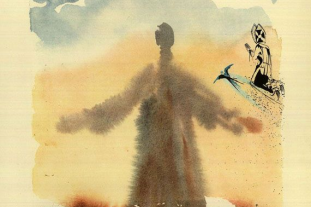God speaks our mother tongue

Source: Jesuit Institute, South Africa
The story of the Tower of Babel (Genesis 11) describes a time when the world was united and spoke a single language. A particular community settled in Shinar (modern-day Iraq) and resolved to build a city. They decided to build a high tower that reached up to heaven.
Genesis relates that when God saw their pride, he confounded them so that they all began speaking different languages and could no longer understand each other. The community was scattered all over the earth, and that is how different languages came to exist.
This moral allegory has had a devastating effect on linguistic diversity. Its main thesis is that monolingualism is good. Multilingualism, on the other hand, is God's punishment for wanting to become like God. It follows, then, that linguistic diversity is bad.
The Babel story in the Hebrew and Christian traditions, (1) Calvinist interpretations of it, and their influence on contemporary political systems still deprecate linguistic minorities. Modern nation-states bring together diverse cultures and linguistic traditions, but for the national project to work, governments rally their populations to unite behind a common identity. Language (usually that of the dominant group) becomes a vehicle for exerting power and controlling populations. The consequence is the loss of linguistic diversity, ranging from neglect to ethnic cleansing.
Although Angola has 46 indigenous languages, Portuguese-the coloniser's language-remains the language of public life.
When Singapore became independent in 1965, it brought together fractious communities of Malay, Tamil, and Chinese descent. To prevent further conflict, Singapore chose English as its official language.
Although over 300 languages are spoken in China, Mandarin is the dominant language, and cultural minorities like the Uyghurs face systemic persecution.
In South Africa, laudably, we have 12 official languages. However, what of the 13 languages spoken by various communities, but their languages barely figure in our national conversation?
Tomorrow, UNESCO celebrates International Mother Language Day to promote linguist awareness and diversity. There are some 7,100 languages spoken in the world today. Sadly, about 3,000 of these are endangered and at risk of disappearing altogether within the next two generations.
Others are on the verge of extinction. 92-year-old Katrina Esau is the last remaining speaker of N/uu, a San language considered South Africa's oldest language. Her granddaughter is fighting against time to record as much as she can before it's too late and hopes that N/uu can still be revitalised.
Language shapes our identity and connects us to our inner and spiritual lives. In this regard, Christian communities have done an excellent job translating the Bible. The complete Bible is available in 756 languages; another 1,200 languages have partial translations, but much remains to be done.
Our entry point into deeper communion with God is through the language of our hearts. It is the language of prayer. The language of God is not the language of the dominant earthly power. God seeks out the oppressed and marginalised. More rightly, we can say that God speaks the thousands of languages that have formed the palimpsest of human experience throughout history. And in each generation, people will continue to hear God speak to them "in the native language of each" (Acts 2:6).
As people of faith, let us continue to work to bring God's message of love to everyone in their mother tongue and celebrate linguistic diversity in our communities.
(1) John Calvin's commentary of Genesis 11 saw linguistic diversity as a "defect" that is "repugnant to nature" and served as a "divinely inflicted punishment" against those who impiously conspired against God."


















